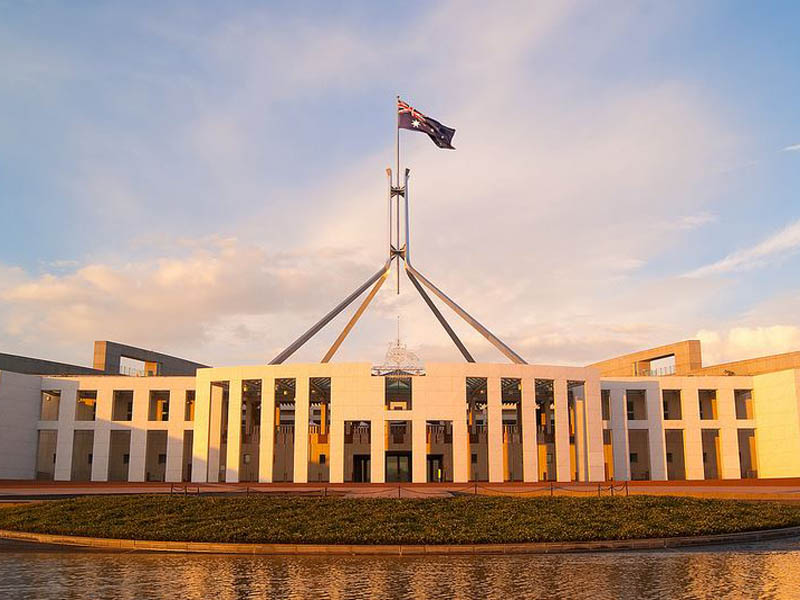The Albanese government has quietly approached a small number of local and foreign quantum computing firms for information about their offerings as part of an accelerated plan to acquire a full-stack error-corrected quantum computer, with US-based PsiQuantum firming as the favourite.
The move has surprised many in the local tech industry, which has criticised the government for a lack of transparency in its approach to market, or the strategy behind it. It is understood the cost to government would be in the region of $100 million to $200 million.
The government has also been accused tilting its approach to market in favour of technology being pursued by PsiQuantum, which has a publicly stated ambition to deliver its first commercial quantum computer in less than six years.

Multiple sources have told InnovationAus.com that an expression of interest (EOI) process was started in August, with local and international firms hand-picked by the government invited to pitch their offerings and to put forward proposals for the financing of the plan.
Participants in the process have been bound to strict non-disclosure agreements, effectively keeping the EoI process out of public view.
Industry and Science minister Ed Husic, as well as the Department of Industry, Science and Resources, did not respond to detailed queries when contacted by InnovationAus.com on Friday.
It is unclear whether the government intends to buy a quantum computer outright, as reported by Information Age earlier this week, or make an equity investment in a company, but the use of an EOI puts the government in position to assess their options.
The EOI was issued in August, just months after the release of the inaugural National Quantum Strategy, in which the federal government proposed building the “world’s first error-corrected quantum computer in Australia”.
The strategy placed a focus on building sovereign capability and local expertise, with little in the way of additional funding offered by the government on top of the $1 billion promised for critical technologies through the $15 billion National Reconstruction Fund.
One source, who spoke on the condition of anonymity because of the “unusually strong” non-disclosure agreement attached to the EOI, confirmed that several firms, including California-headquartered PsiQuantum responded to the EOI.
PsiQuantum is considered a front-runner among the firms, with several sources claiming claimed that the EOI had been written in a way that benefits the company and its fusion-based approach to quantum computing.
Founded by Australians Jeremy O’Brien and Terry Rudolph, PsiQuantum has a stated mission to build the “world’s first useful quantum computer”, which it reportedly aims to deliver in as little as six years.
The company, which has a current valuation of more than $5 billion and has raised $700 million, is betting on a photonics-based approach that uses photons as a representation of qubits instead of electrons.
In an address at the Quantum Australia Conference earlier this year, Mr Husic hailed PsiQuantum for the “mind-blowing progress they’re making in their ambition to build the world’s first fault tolerant quantum computer”.
While Australia has a world-renowned quantum sector attracting a share of venture capital that is well above Australia’s contribution to global GDP, many of the firms are targeting a 15-year horizon for their technology.
Sources have suggested that “speed to delivery” is important for the government, which is looking to get on the front foot and deliver a scaled-up quantum computer as soon as reasonable possible, making efforts to bring in overseas companies understandable.
But other sources are concerned about the message that bringing in a quantum leader with no Australian footprint sends to other governments and international investors, damaging the prospects of the local sector.
At between $100 and $200 million, the proposed investment would be the government’s largest single investment in quantum in recent years.
It would also be the equivalent of the government’s industry support for artificial intelligence and quantum in the critical technologies package contained in the federal Budget earlier this year.
InnovationAus.com understands a funding and acquisition proposal has been prepared for Cabinet and could be considered as soon as next week.
While complicated by national security and defence interests, with quantum one of the four priority technologies that Australia, the United States and United Kingdom have committed to process by 2025 under AUKUS Pillar II.
PsiQuantum has deep connection in the defence apparatus, with former chief of staff to the Defence Minister Richard Marles, Lidija Ivanovski, lobbying on behalf of the company, according to the government’s register of lobbyists.
Shadow minister for government services and the digital economy Paul Fletcher has called on Mr Husic to “explain to industry why they are being kept in the dark over such as a significant procurement”.
“Australia has established itself as a world leader in quantum computing and it’s disappointing to hear that such a massive amount of taxpayer money could be invested without a tender and competitive process,” he said.
“Of course, we should consider overseas-based technologies to advance our objectives in this critically important space, but governing based on secrecy is not the way to go about it.”
With James Riley
Do you know more? Contact James Riley via Email.
Credit: Source link
